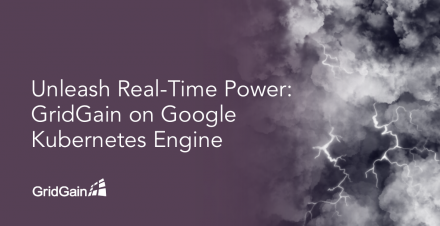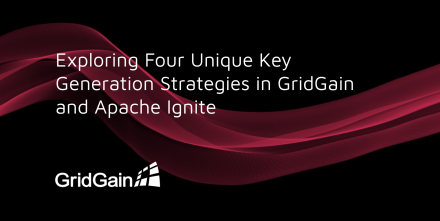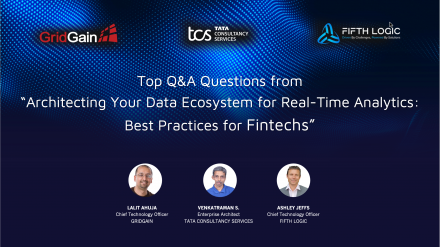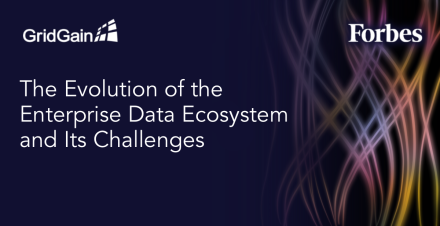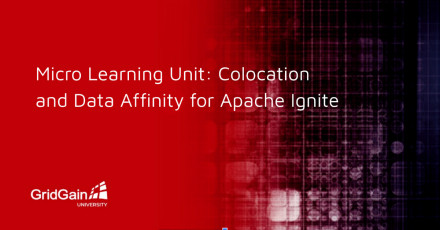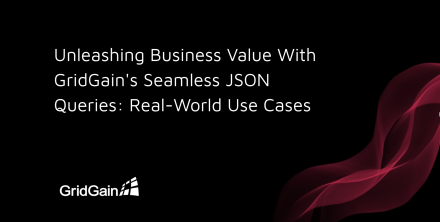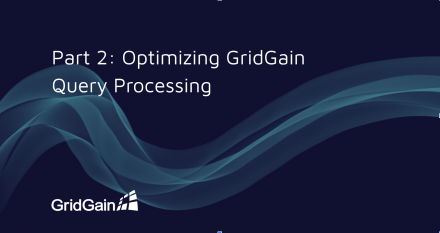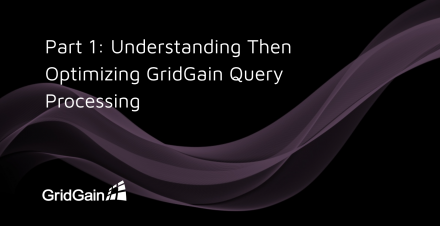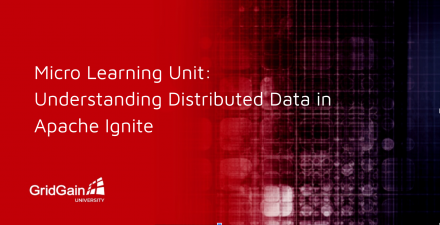The GridGain Systems In-Memory Computing Blog
In today's data-driven world, applications need to be lightning-fast. Users crave instant gratification, and businesses require real-time insights to make informed decisions. Traditional databases, while reliable, can struggle to keep pace with the ever-increasing demands of modern applications. Enter GridGain and Google Kubernetes Engine (GKE), a powerful duo that empowers you to build and…
I still remember the day I boarded my first flight ever – the idea of crossing such a huge distance in a very short time, the excitement of getting on a plane and getting to look down from the window up in the sky floating over the clouds was heightened by the nervous chill as we went through security and gate checks. In fact, I can safely say that the flight was the best part of my trip. …
Some databases have a feature where a column can be “auto-incremented.” In this piece, we’ll explain why GridGain and Apache Ignite do not, and what you can do to get equivalent functionality. The naming varies, but the concept is straightforward: the system automatically generates a key for you if there is no unique business key for a table. Typically, this would be a numeric column, and…
We hosted a rich technical conversation around the data challenges faced by Fintechs on our recent webinar, “Architecting Your Data Ecosystem for Real-Time Analytics: Best Practices for Fintechs.” This included many great questions from our audience during the Q&A. Here is a recap of the Q&A, including questions we weren’t able to get to during the live event. What is driving…
In his 2005 book, The World is Flat: A Brief History of the Twenty-First Century, Thomas Friedman talked about globalization and a level playing field. Globalization, fading geographical boundaries, and increasing economic dependencies between countries and companies have increased the influence of and dependencies on global information for enterprises worldwide. Global information, characterized…
This eight-minute GridGain University Micro Learning Unit explores the importance of colocation and affinity to the performance of Apache Ignite data query and computation.
The two largest sources of latency in any distributed system are network latency and disk access. In traditional client server applications, data is constantly moved over the network, and it's usually accessed from…
In today's fast-paced business environment, it’s crucial to gain a competitive edge by quickly extracting meaningful insights from diverse datasets. It is also vitally important to be responsive to changing data as soon as possible. These requirements demand a data solution that is flexible and performant. JSON (JavaScript Object Notation) data format, which supports unstructured or semi-…
Welcome to part two of our blog series on “Understanding Then Optimizing GridGain Query Processing.” To properly understand this second blog, it’s highly recommended that you familiarize yourself with the background material that was shared in the first blog post of this two-part series.
With the requisite background in place, we can now explore how to overcome the limitations of…
Introduction
In this two-part blog post, we will first explore and understand the major steps that are executed by GridGain’s SQL query processing engine. More importantly, we will share how data is exchanged in the above process and learn about certain limitations that exist within this process.
After learning the basics in part one, we will then explore how to overcome those…
This six-minute Micro Learning Unit explores how distributed data is implemented in Apache Ignite and identifies solutions to three key data challenges: hardware capacity, hardware reliability, and performance issues.
Capacity: It’s more efficient to scale data capacity horizontally than vertically. For example, extremely fast CPUs typically cost several times as much as two slightly slower…

